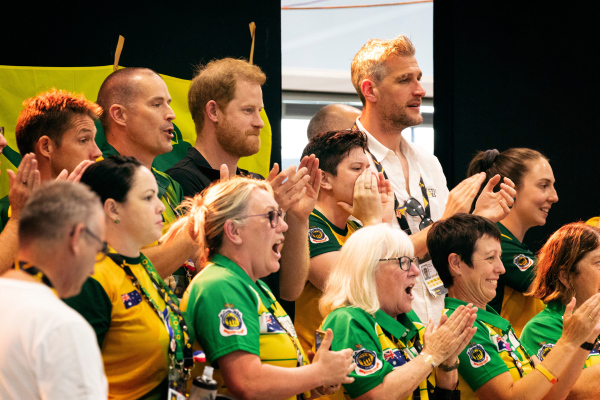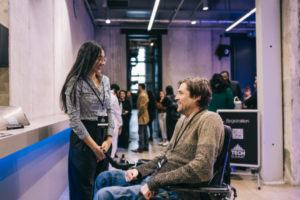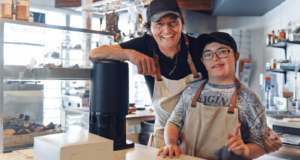Have you been cheering on the Australian Team at the 2022 Invictus Games in The Hague? Or are you new to the games and not sure what they’re all about?
Here’s our quick guide to the Invictus Games and what
The Invictus Games in The Hague is on, running from April 16 – 22, 2022, after a two-year delay due to the COVID-19 pandemic.
This year, the Invictus Games will bring together more than 500 competitors from 20 nations to compete in adaptive sports.
Competitors must be injured or unwell military personnel or military veterans to participate in the Invictus Games. As interest in the games grows, national teams see interest from competitors with a much more comprehensive range of injuries and illnesses – both physical and psychological.
The 2022 Australian team has 32 competitors, and even more grassroots volunteers, officials and coaches.
What are the Invictus Games?
The Invictus Games is an international sporting event for injured, unwell and otherwise wounded service personnel and veterans.
The word ‘Invictus’ means ‘unconquered’, chosen as an embodiment of the fighting spirit of the wounded, injured and sick Service personnel and what they can achieve post-injury.
The Invictus Games were founded by Prince Harry, Duke of Sussex.
The Invictus Games have been held five times since their launch in 2014, with events in London, UK, Orlando, USA, Toronto, Canada, Sydney, Australia and now The Hague in the Netherlands.
The inspiration behind Invictus
The full horrors and trauma of warfare and peacekeeping is something many of us will never know.
Many military personnel suffer life-changing injuries while serving their country. How do these veterans find the courage and drive to recover and not be defined by their illness or disability?
On a 2013 trip to the Warrior Games in the USA, HRH The Duke of Sussex experienced the power of sport to help physically, psychologically, and socially those suffering from wounds, injuries and chronic illnesses.
He was inspired by what he saw … and the Invictus Games were born.
Invictus shines a spotlight on people who served their country, became wounded or chronically unwell, and now face a long recovery journey and potentially a new career and life.
The games also showcase the power of sport to assist in recovery, rehabilitation and reintegration for veterans living with a disability, injury, or illness.
More than just a sporting competition, the Invictus Games epitomise what preserving veterans can achieve post-service despite living with an illness, injury or disability.
Above all else, the games capture hearts, challenge minds and change lives.
Recovery through sport
The physical and mental health benefits of an active lifestyle are well known.
The benefits for veterans are numerous, too, aiding recovery from service-based injury, illness and social isolation.
For service people with physical injuries and mobility issues, regularly participating in sports can lead to many physical improvements, including:
- Increased muscle strength,
- Improved balance and motor skills,
- Enhanced cardiovascular endurance and
- Higher energy levels
For veterans with disabilities, increased physical strength and energy can lead to greater independence and freedom as more daily tasks can be completed without assistance.
Physical activity has been shown to boost mental wellbeing in veterans through active coping to reduce stress.
Additionally, it helps to reengage with the community – both the ex-service community and society more broadly. Benefits often include:
- Increases in self-determination
- Ability to tap into inner strength
- A new focus on ability instead of disability
- Broadening of horizons
- A more positive self-identity
- A sense of achievement and accomplishment
- Improved social wellbeing
Participating in sports and physical activity can also enhance motivation for living.
Furthermore, playing sports has been shown to reduce PTSD symptoms and improve mood and confidence by:
- Helping to build self‐confidence
- Developing self-discipline
- Improved body awareness
- Better teamwork and communication skills
- Re‐establishing daily patterns of living that supply structure and support
Getting back into sport and exercise
There are a several organisations veterans can engage with sports following injury, illness or disability:
Invictus Australia
Invictus Australia partners with large national sporting organisations to deliver sporting programs for veterans and their families locally.
It works with its partners on programs and initiatives and encourages the Australian Defence community to become involved – and stay involved – with some of the best sporting communities Australia has to offer.
How can Lifely help?
At lifely, we support several participants to compete in sports at a local, state and national level.
We work with participants to include sports and physical activity goals in their NDIS plans. We assist them in connecting with sporting clubs, attending training, and competing on game day.
In some cases, Department of Veteran Affairs funding may be used to access these services.
We can also help advise Plan Management and Support Coordination participants about using their NDIS funding to purchase the assistive technology they need to play.
Think Physical
For veterans aged 25 and under, we can help participants connect to inclusive sports and recreation opportunities through our Think Physical program.
With a focus on mainstream sporting codes, we work closely with sports clubs and associations to grow their understanding and the opportunities for young people with a disability to join their teams.
We also work one-on-one with families and young people to find activities that meet their exercise needs and support them to connect and get started.
Think Physical is made possible with funding from VicHealth’s Reimagining Health program. This program is currently only available in Greater Bendigo.




